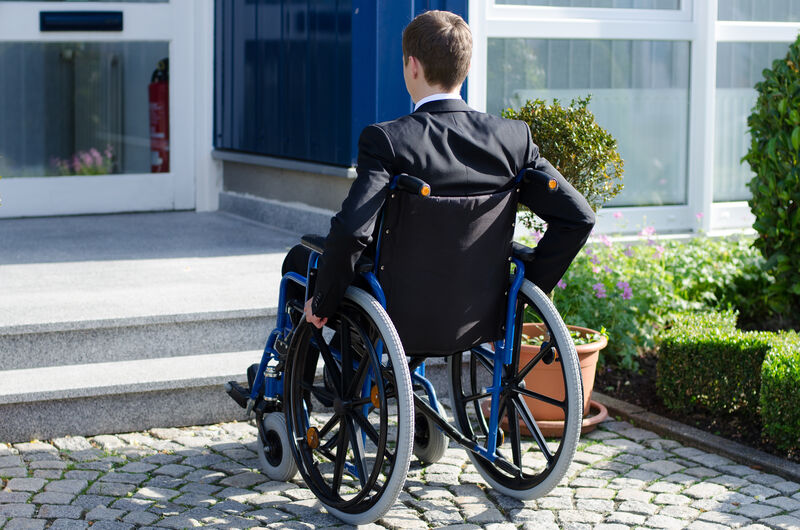
Here at the Rocky Mountain ADA Center, we get a lot of calls about resources and support for people with disabilities. While our center does provide information on the Americans with Disabilities Act (ADA), often, we cannot speak to specific resources. In these cases, we refer people to their local Center for Independent Living (CIL). Their goal, like the ADA, is to eliminate barriers so that everyone has equal opportunity in life.
Many individuals with disabilities find CILs useful for their ability to empower people through education and advocacy. A majority of their staff are people with disabilities. They have both the training and personal experience to help others live independently. Each center provides four core services: information and referral, advocacy, peer counseling, independent living skills training and transition services.
Information and Referral
CILs provide individuals with the knowledge and resources to navigate their every day life. People can get meaningful referrals, increase their knowledge base, and increase their independence. Learning to navigate complex systems also falls under this service. Common complex systems that CILs help navigate are legal mitigation or the housing system. Other common resources include transportation, employment opportunities, personal care attendant referrals, interpreters for people who are Deaf or hard of hearing and readers for people who are Blind or low vision.
Advocacy
The advocacy umbrella for CILs cover a wide range of approaches. Advocacy is a core service for its ability to build community and change lives. Your local CIL will either have advocates on staff or will have their own network of advocates. These people address the needs of individuals with disabilities who experience discrimination because of race, gender, immigration status, etc. They also help influence legislation to fix discriminatory systems. CILs often sponsor or host meetings for community organizing or workshops. These events serve as space to discuss, share and learn ideas all dedicated to advocacy work.
Peer Counseling
Peer support is a “hallmark” both for CILs and the independent living movement. There are several mentoring approaches that support different philosophies surrounding peer counseling. The two main ways for CILs are one-on-one or in larger groups. These can be in person, over the phone, email or even via social media, like a Facebook live peer support group. Sometimes, the counseling is disability-specific, such as having a brain injury, or age-specific, like youth-groups. The program's intent is to surround participants with others who have a “been there, done that” mentality. Sharing experiences about dealing with or overcoming obstacles encourages independence and empowers others.
Independent living skills training for transition to the community
Moving back into a community from a nursing facility, for example, can be a challenge. It can be difficult and time consuming. CILs establish skills that help someone with a disability lead a happy and independent life. Two crucial aspects of this service are peer-to-peer interactions and empowering the individual to make decisions about their health for themselves. These aspects allow an individual to hone their skills, address what makes them nervous or cautious and give them the confidence to navigate whatever systems necessary. Some of these systems include Social Security and installing accessible features like ramps.
Because of their involvement with their local community, CILs have wonderful referral networks. Considering the wide variety of disability groups they serve, it is important to note the extent that your local CIL can serve your needs. It depends on many variables. These variables include the availability and quality of services from other organizations, their financial resources and the amount of involvement of local community members with disabilities with the center.